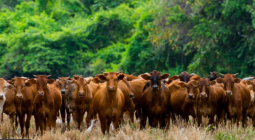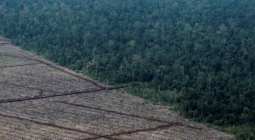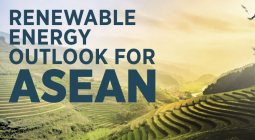Indonesia’s leader touts green goals at COP26, but overlooks green stewards at home
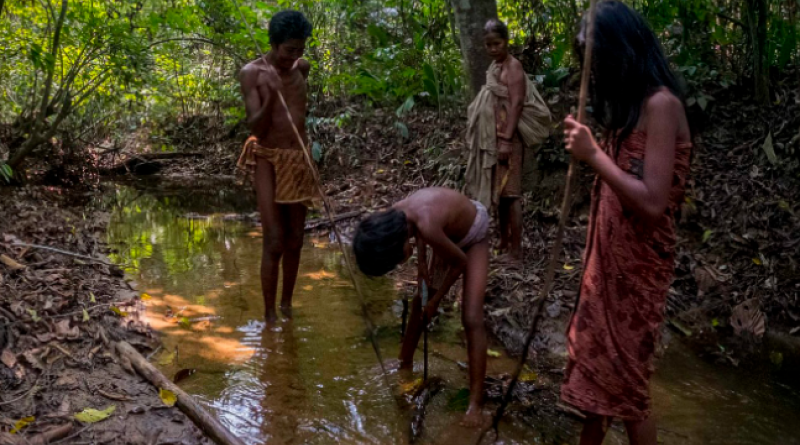
- Indigenous rights advocates have lambasted Indonesian President Joko Widodo for failing to acknowledge Indigenous peoples and their role in protecting forests during his speech to other world leaders at the COP26 climate summit.
- They say this omission is emblematic of the government’s neglect of Indigenous Indonesians, who number an estimated 70 million and continue to lose their ancestral lands to extractive and infrastructure projects throughout the country.
- Advocates note that conflicts over Indigenous lands have increased under Widodo, and look likely to escalate under pro-business legislation championed by the administration.
- They also say this reality on the ground belies Widodo’s public stance at COP26, where he signed on to a pledge to end deforestation by 2030, which includes supporting Indigenous communities in their role as forest stewards.
JAKARTA — Electric vehicles, solar power plants, biofuel, blue carbon, green bonds and the carbon market: all got a mention from Indonesia’s President Joko Widodo in his speech at the World Leaders Summit at the COP26 U.N. climate talks in Glasgow, Scotland.
Conspicuously absent from his speech, however, was any commitment to protect the rights of Indigenous peoples or even acknowledge the role they play in guarding the rainforests and peatlands that are crucial to efforts to curb global warming.
“If we see [the speech], there’s no sense of pride in the role of Indigenous peoples and other [local] communities,” said Monica Kristiani Ndoen, an activist from Indonesia’s main Indigenous alliance, AMAN, who is attending COP26. “Other countries like Bolivia proudly mention the role of Indigenous peoples in tackling the climate crisis. But [Widodo] didn’t mention that at all. He only talked about the carbon market, carbon pricing, and electric vehicles.”
She said the speech was indicative of Indigenous peoples being routinely overlooked in government policies to protect forests, and points to a continuation of this oversight. If so, activists say, it threatens to derail the global commitment to end deforestation by 2030, signed by Widodo and the leaders of more than 100 other countries at the climate summit.
Evidence shows that Indigenous peoples are the best guardians of their forests. In country after country, deforestation rates are lower in lands managed by Indigenous and local communities. In Bolivia, the rate of deforestation on lands securely held by Indigenous peoples is about 35% of what it is in other comparable areas; in Brazil it’s 40%, and in Colombia half.
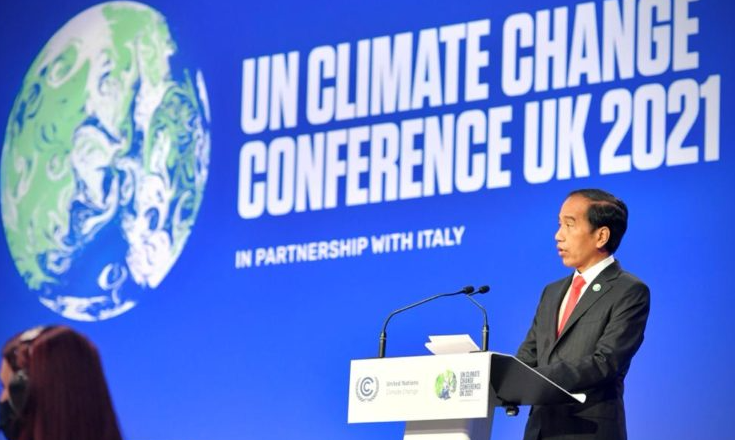
Indigenous woes
Indonesia is home to the third-biggest swath of tropical rainforest, after Brazil and the Democratic Republic of Congo, as well as to a large and diverse Indigenous population. While there’s no official data on the number of Indigenous groups in Indonesia, it’s estimated that there are 70 million Indigenous individuals in the country, living in areas spanning a combined 40 million hectares (99 million acres).
Some 20 million of them are members of AMAN, which makes it the world’s largest advocacy group for Indigenous communities.
For decades, Indonesia’s Indigenous communities have struggled against a relentless push by the government and the private sector to appropriate, often violently, their ancestral forests and lands for agriculture, logging and mining, all in the name of development and economic growth.
When Widodo ran for president in 2014, he promised to protect Indigenous rights by recognizing their ancestral rights, passing a highly anticipated and long-awaited bill on Indigenous rights, creating an independent and permanent task force for Indigenous communities, and resolving land conflicts over Indigenous territory.
These promises, combined with Widodo’s man-of-the-people image that he embraced during the campaign, was enough to win him the endorsement of AMAN, which had never before officially backed a presidential candidate.
Since then, however, AMAN has become one in a long list of supporters that have grown disillusioned with the president and his failure to make good on his pledges. For one, land conflicts continue to fester under the Widodo administration, even outpacing the number of conflicts that flared up during the two terms of his predecessor, Susilo Bambang Yudhoyono.
The Consortium for Agrarian Reform (KPA), an NGO that advocates for rural land rights, recorded 2,291 conflicts during Widodo’s first five-year office term, from 2015-2020, compared to 1,770 cases under the Yudhoyono administration, which ran from 2004-2014.
Activists have attributed this increase to Widodo’s ambitious infrastructure push, with new airports, toll roads, dams and ports being built across Indonesia, often at the expense of communities already living in those areas.
Widodo has also fallen short of his goal to recognize Indigenous land rights. Nationwide, the government has granted land titles to just 80 communities, covering a total of 59,442 hectares (146,884 acres), as of July this year — far short of the 10.56 million hectares (26 million acres) of ancestral forests that have been independently mapped by 833 Indigenous communities across Indonesia. Those maps were submitted to the government in 2019.
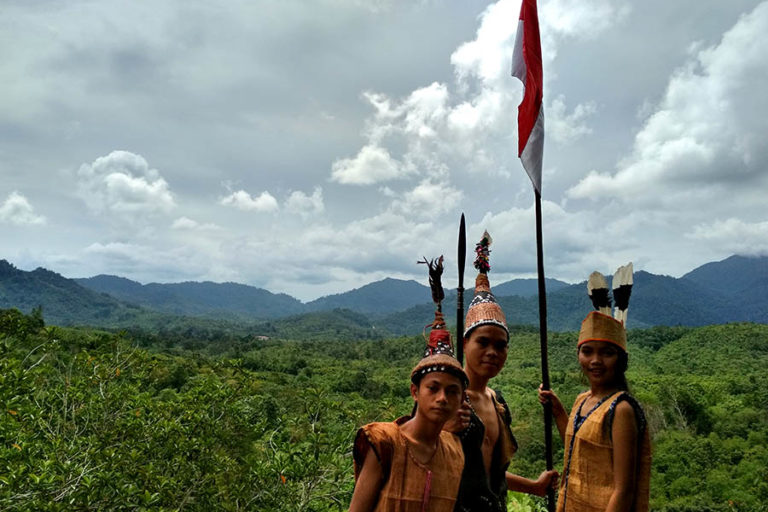
Indigenous rights bill on the back burner
At the same time, the much-promised bill on Indigenous rights continues to languish in parliament, where parties aligned with Widodo’s coalition dominate with more than 80% of seats. The bill would grant recognition of the customary laws and land rights of Indigenous communities across Indonesia, proponents say — if only parliament would pass it.
The bill, a perennial priority for legislation for several years, is meant to be the follow-up to a landmark Constitutional Court ruling in 2013 that rescinded state control over Indigenous lands and gave it back to Indonesia’s Indigenous peoples. But with the bill stuck in legislative limbo, Indigenous communities continue to be vulnerable to losing their lands to those who see profit in their forests.
“The president has to push for the passing of the law on Indigenous peoples to protect the rights of Indigenous communities who are in the front line of the defense of remaining natural forests,” said Nadia Hadad, executive director of environmental NGO Madani.
She said this would go a long way toward helping the country meet its goal of turning its forests back into a net carbon sink by 2030, a target that Widodo reiterated in his COP26 speech.
Giving Indigenous peoples and local communities in Indonesia greater access to manage their forests could contribute up to a third of the country’s emissions reduction goal from reducing deforestation, Nadia said.
She added protecting Indigenous rights is also in line with the COP26 Glasgow Leaders Declaration on Forests and Land Use, signed by the leaders of at least 110 countries representing 85% of the planet’s forests, including Indonesia.
“We have to stop the devastating loss of our forests,” said U.K. Prime Minister Boris Johnson, who is hosting the summit in Glasgow. “[And] end the role of humanity as nature’s conqueror, and instead become nature’s custodian.”
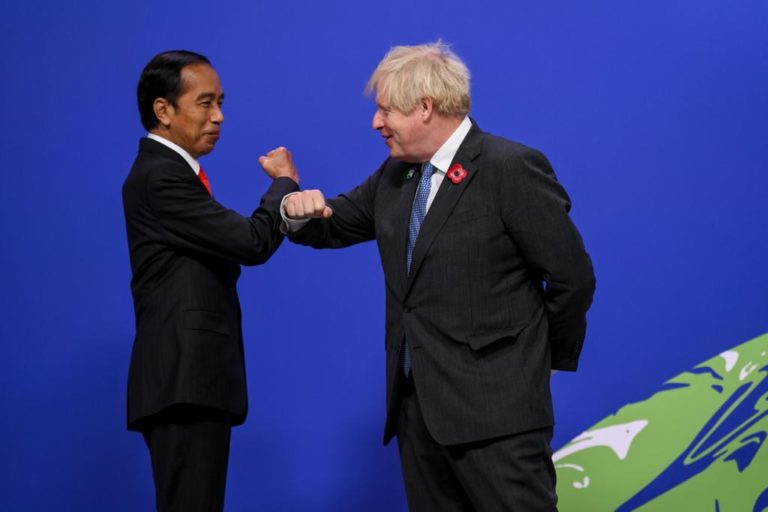
Pledges vs. pragmatism
Signatories to the pledge vowed to empower local communities, including Indigenous peoples, in managing their forests, as they are often negatively affected by the exploitation and degradation of forests.
The pledge includes a commitment by countries and the private sector to disburse $19 billion for conservation efforts, including $1.7 billion for Indigenous peoples and local communities.
Despite this show of support, activists say they’re worried that Indigenous peoples in Indonesia will continue to be evicted from their lands under Widodo’s staunchly pro-business government.
Last year, parliament passed a controversial slate of deregulation, known as the omnibus law on job creation, amid near-universal criticism. Activists say the law favors business interests and sidelines rural communities and Indigenous peoples by, among other things, expanding the government’s power of eminent domain over areas that it designates as special economic zones, tourism zones and industrial zones. The omnibus law also limits opportunities for the public to have a say in approving infrastructure projects in a given area.
“The omnibus law opens up more opportunities for the grabbing of customary areas and environmental destruction that releases emissions,” Monica of AMAN said.
She cited the ongoing conflict between the Indigenous Laman Kinipan community in the Indonesian part of Borneo and a palm oil company as an example of how Indigenous peoples are often defenseless against intimidation and prosecution, even before the omnibus law was passed.
Last year, Effendi Buhing, a leader of the Laman Kinipan, was arrested by police in relation to the years-long land dispute with the palm oil company. The community had been expelled from their land in 2018 when the company moved in. Since then, they’ve also experienced intimidation from the company, which has apparently enlisted the police to its cause.
“The customary forests of Kinipan in Central Kalimantan, with their lush trees, have been cleared by the oil palm company,” Monica said. “So what [Widodo] said contradicts the reality on the ground.”
Banner image: The Suku Abak Dalam indigenous peoples are the original inhabitants of Bukit Duabelas National Park in Sumatra, Indonesia. Image courtesy of Abusalwasalmanshakila/Wikimedia Commons.
8 November 2021
MONGABAY

